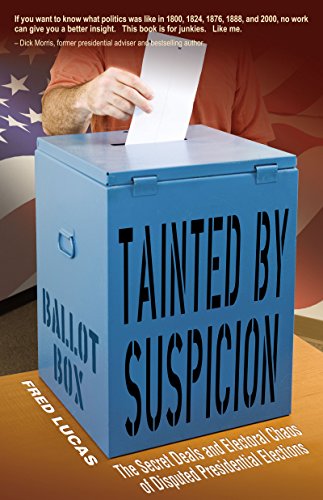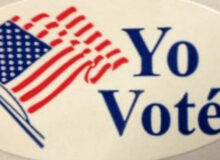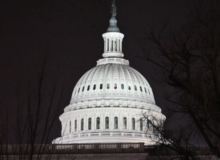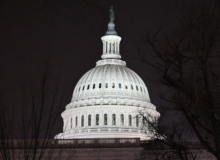Note: on 8/3 Fred Lucas will be a guest on the Lid Radio Show to discuss his new book called Tainted by Suspicion: The Secret Deals and Electoral Chaos of Disputed Presidential Elections.” With all the claims about the primary process being rigged, Fred’s book and appearance on the show comes at a perfect time. I have only started to read it, but so far it’s a captivating read. To give you a taste of the book and what we will discuss next week, Fred has written a guest post briefly looking at some of the rigged/contested elections in American History. It is my hope that you enjoy reading it as much as I did.
Guest post by Fred Lucas
Rigged is a word you’ve heard a lot in this presidential election. From the podium in Cleveland, Trump said Bernie Sanders never stood a chance against Hillary Clinton because the game was rigged. He used to accuse the Republican party of rigging the game against him.
People were up in even more of a lather in previous elections. Four times in the history of the United States, it wasn’t the voters, or even presidential electors, that chose the president. Rather, it was a separate branch of government. I write about these in my book, “Tainted by Suspicion: The Secret Deals and Electoral Chaos of Disputed Presidential Elections.”
For most, 2000 is the frame of reference. But a majority was able to accept the Supreme Court’s verdict in Bush v. Gore, even though many Democrats take it as an article of faith they were robbed in Florida. But other examples are more profound. Two elections could have led to war.
Democrats, such as newspaper barons Joseph Pulitzer and Henry Watterson, talked about leading 100,000 armed men into Washington if their nominee Samuel Tilden didn’t win the presidency. It was actually talk, but Democrats and their media allies did spend the next four years calling President Rutherford B. Hayes, Rutherfraud. In reality, 1876 was a presidential election the Democrats stole and the Republicans stole back.
The election controversy came at a very touchy time for the country, just 11 years after the end of the Civil War. America could have been pushed to war again had some of the rowdier voices prevailed.
Similarly, after the 1800 Electoral College tie with Thomas Jefferson and his running mate Aaron Burr, the lame duck Federalist Congress considered installing Burr as president. Jefferson supporters were threatening armed rebellion. But, in the end, the country went through the first peaceful transfer of power, and Burr, of course, became disgraced on multiple other fronts. The infant country was at a delicate stage at this time, and there were legitimate fears about a French Revolution-style ideology spreading.
The other elections, 1824 and 2000, didn’t come close to armed conflict. But after the 1824, John Quincy Adams had a stillborn presidency, dogged by the alleged “corrupt bargain” with Henry Clay. Further, 1824 most closely resembles 2016. It was the ultimate political insider, Adams, verses the in-your-face, sometimes foul-mouthed, politically incorrect outsider, Andrew Jackson. Jackson won a plurality but not a majority of both the popular and electoral votes, but lost the presidency.
So, what about 2016? There’s a few scenarios.
Consider how close the race is in key states of Pennsylvania, Ohio and Florida and the high unfavorable ratings for both candidates. There could be a split with the popular and Electoral College vote.
Further, an unusually credible Libertarian party ticket that is polling in double digits could – on the off chance of winning even a few small states – could deprive Trump and Hillary an electoral majority. That would mean the Republican-controlled House of Representatives would decide.
None of this could happen, right? It’s too rare, almost unheard of.. Sort of like everything else in the 2016 election.
Fred Lucas is the author of “Tainted by Suspicion: The Secret Deals and Electoral Chaos of Disputed Presidential Elections” (Stairway Press, 2016).







